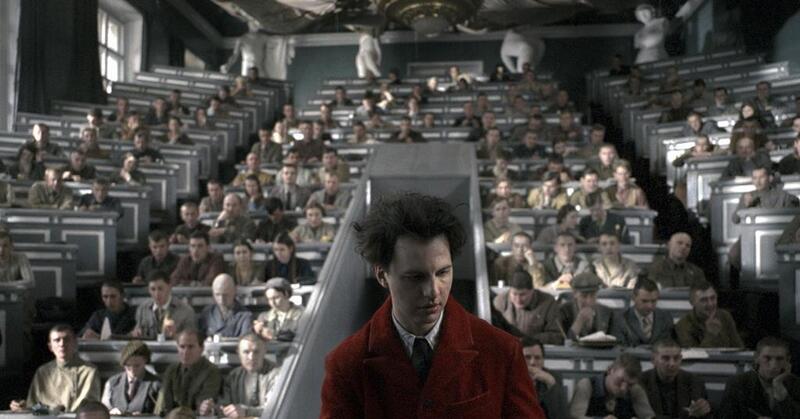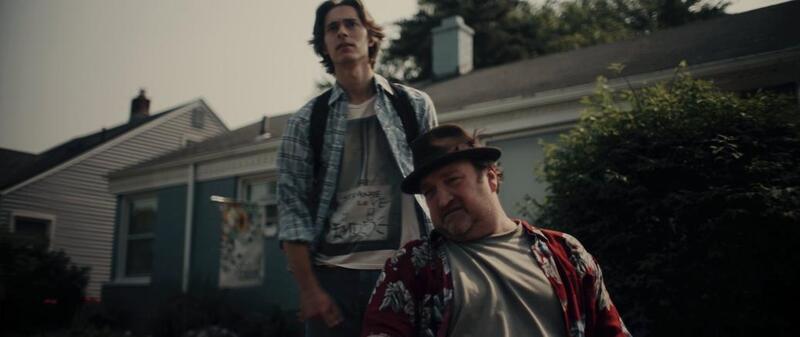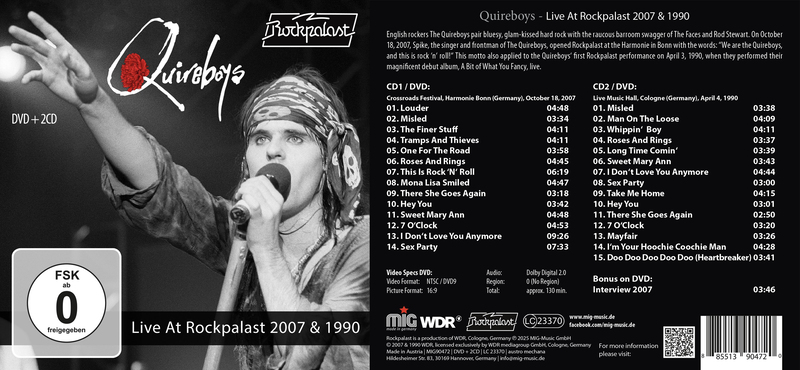
Soviet Shadows, Quantum Questions, and Human Exposure
MOVIE REVIEW
DAU: THE QUANTUM EFFECT (Venice Exhibition Review)
Genre: Experimental, Drama, Historical, Art Installation
Year Released: 2025
Runtime: FOUR 126m, DAU. NATASHA 134m, DAU. DEGENERATION 369m
Director(s): Ilya Khrzhanovsky (primary), with contributions across the DAU collective
Writer(s): Vladimir Sorokin (for FOUR), improvised and scripted elements across DAU films
Cast: Marina Abramović, Luc Bigé, Natalia Berezhnaya, Vladimir Azhippo, and numerous non-professionals, scientists, and performers
Where to Watch: shown at the 2025 Venice International Film Festival
RAVING REVIEW: Venice has always been a city of contradictions, a place where opulent façades conceal elaborate secrets. It feels fitting then that Ilya Khrzhanovsky brought his sprawling, controversial DAU project here under the banner of The Quantum Effect. Staged at the San Marco Art Center, the exhibition reframes the long-mythologized DAU experiment by presenting unseen “physics” reels—documented debates between real scientists dropped into meticulously recreated conditions of Lev Landau’s Soviet laboratory—while pairing them with restored screenings of three completed works: FOUR, DAU. NATASHA, and DAU. DEGENERATION.
Seen together, they offer a portrait of an artist less concerned with cinema as a polished narrative and more invested in cinema as a pressure chamber. Khrzhanovsky doesn’t direct stories so much as environments. He builds a reality, seals participants inside, and rolls cameras until the borders between performance and life evaporate. This is both exhilarating and disorienting, and its ethical implications are complex, depending on one's perspective.
A restored version of FOUR feels almost like an overture to everything that followed. Co-written with Vladimir Sorokin, it unfolds with three strangers swapping made-up stories in a bar, only to have those fictions seep into their lives. Although a relatively conventional feature compared to the later DAU films, it already contains Khrzhanovsky’s core fascinations: blurred identity, destabilized reality, and the sense that truth in Russia is always provisional and fragile. Even in its more straightforward form, FOUR pulses with unease. Its imagery—meat markets, drunken conversations—lurches between satire and nightmare. In retrospect, it’s a blueprint: an early experiment that anticipated the DAU laboratory years.
By contrast, DAU. NATASHA narrows the lens to a brutal chamber piece inside the Institute. At 134 minutes, it is the most accessible of the DAU films, but also one of the most disturbing. Natasha, a bar worker, becomes both protagonist and pawn in a web of surveillance, betrayal, and abuse. The Silver Bear awarded to cinematographer Jürgen Jürges speaks to its artistry, but artistry alone doesn’t dissolve the discomfort of watching sequences that feel less like performance than lived trauma. It’s precisely this ambiguity—are we witnessing fiction, exploitation, or some hybrid form?—that keeps the film contested. It succeeds in suffocating its audience inside an authoritarian microclimate, but whether that immersion yields meaning or merely spectacle is a fair question.
DAU. DEGENERATION, at more than six hours, takes that authoritarian vision and expands it into a distorted, carnival-like excess. Children sing disturbing anthems, pseudo-scientists enact psychological cruelties, and the Institute becomes a metaphorical stand-in for Soviet society itself. Watching it alongside the more focused NATASHA makes clear just how elastic the DAU experiment is. Where NATASHA tightens the screws, DEGENERATION sprawls outward, reveling in chaos and spectacle. It is relentless, punishing, sometimes hypnotic, and often tedious—an endurance test that raises the question of whether provocation is itself the point.
All of this is reframed by the Quantum Effect reels, where contemporary physicists debate quantum mechanics inside the Institute environment. DAU uses its time-capsule setting not just to deconstruct politics or psychology, but to stage actual intellectual inquiry. The result is uncanny: modern scientists wrestling with timeless theories under the gaze of Stalinist portraits and retro lab coats. Here, the project’s potential becomes clearest—cinema not as storytelling but as documentation of human behavior under constructed pressures. Whether the subject is science, desire, or ideology, Khrzhanovsky treats them all as experiments.
Taken together, these films and fragments make for an exhibition that is as impressive as it is troubling. The artistry is undeniable: from the period detail to the sheer ambition of corralling hundreds of hours of footage into a coherent experience. Yet the ethical questions remain: Are we witnessing revelations about human adaptability, or are we complicit in voyeurism dressed as radical?
That tension is what defines DAU, and it’s why The Quantum Effect matters. In Venice, the project steps into yet another frame, aligning itself with quantum physics—a field that itself resists certainty and thrives in paradox. It’s an apt metaphor. DAU is both cinema and anti-cinema, both profound and manipulative, both visionary and irresponsible. Depending on where you stand, it’s either one of the most daring art projects of the century or one of the most reckless.
As an experience, the exhibition demonstrates why Khrzhanovsky remains impossible to categorize. He renounced his Russian citizenship, criticizes his country’s regime, and continues to pursue art that refuses comfort. In Venice, audiences encounter him not as a conventional filmmaker, but as a provocateur whose films are inseparable from the environments that gave birth to them. Whether you leave exhilarated or appalled, you don’t leave unchanged.
Please visit https://linktr.ee/overlyhonestr for more reviews.
You can follow me on Letterboxd, Instagram, Twitter, and YouTube. My social media accounts can also be found on most platforms by searching for 'Overly Honest Reviews'.
I’m always happy to hear from my readers; please don't hesitate to say hello or send me any questions about movies.
DISCLAIMER:
At Overly Honest Movie Reviews, we value honesty and transparency. Occasionally, we receive complimentary items for review, including DVDs, Blu-rays, CDs, Vinyl Records, Books, and more. We assure you that these arrangements do not influence our reviews, as we are committed to providing unbiased and sincere evaluations. We aim to help you make informed entertainment choices regardless of our relationship with distributors or producers.
Amazon Affiliate Links:
Additionally, this site contains Amazon affiliate links. If you purchase through these links, we may receive a commission. This affiliate arrangement does not affect our commitment to honest reviews and helps support our site. We appreciate your trust and support in navigating these links.



Average Rating